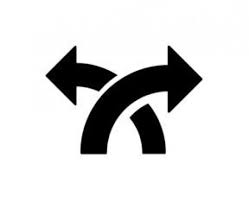|
(2016
midterm assignment) Model Student Midterm answers 2016 (Index) Essay 2: Personal / professional topic |
 |
Christa Van Allen
Singularity and Human Empathy
Singularity within the realm of future narratives is defined as a
hypothetical moment in time when artificial intelligence and other technologies
have become so advanced that humanity undergoes a dramatic and irreversible
change. Already, such things are somewhat touched upon in Sci-Fi, but I will
explore books and other story mediums as a full blown discussion on how such
advancements change people socially and mentally. I crossed the idea while
watching a trailer for PS3 graphics called
‘Kara’, which I will touch upon more,
further in my essay. The trailer startled me and made me think: If something has
become so self-aware, so autonomous that it seeks the human condition, does
humanity have any right to deny them? I plan to use these thoughts for my future
vision presentation.
Singularities can branch in various directions, making it an easy topic to cover
with when trying to address the alternative future narrative. In
The Time Machine, two separate
creatures are revealed to be humanity’s future descendants. The ones that
exemplify the singularity best are the Eloi, small, childish specimens of human
evolution that have become so used to the care of their basic needs by their
subterranean cousins that they are lazy, dumb, and weak. They are unable to
understand the very intelligence which keeps them alive, and so quite honestly
they’re lucky that their farmers are the only predator they have to worry about.
In their version of the singularity, social and economic classes divided in
drastic directions with nothing to worry about in terms of A.I. despite a
believable advancement in the technology of comfort. It was an advancement that
may well have only been a small part of the problem, not the direct problem.
Something like the movie Wall-E, but without the happy ending.
In
Mozart in Mirrorshades the tech in
question is the device that allowed Rice and his colleagues to meddle with
history and split timelines. Again, not about the artificial intelligence
necessary for this machine to function, but how the ranks of humanity prime
decide to use it. The story is unsettling in several regards, displaying overt
abuse and cruelty of the timeline that has been allowed to grow. The main
characters, for lack of a better term, trash a good portion of history for
resources and gems of art that existed in the time frame we’re shown, and
probably several others that we are not given access to. It’s an idea of a bad
future that occurred because of how humanity used their advancements in
technology, not how the technology itself reacted. Some characters act
borderline sociopathic in their words or ideals, and lacking more than a little
natural empathy.
Admittedly, it is difficult to name effective examples from the course texts,
because despite having terrific examples of human reaction to a major tech
advancement, there are no such viewpoints from the technology side of the
equation. One text I found that does acknowledge this though, was written by the
father of Sci-Fi robotics himself, Isaac Asimov. Known primarily for his
development of the three infallible laws of robotics, Asimov wrote a book
comprised of short stories about humanity’s future with intelligent, but
somewhat less autonomous than humans, robots. ‘Robbie’
is the first story we read in ‘I, Robot’,
that details the bond between a young girl named Gloria, and her caregiving
robot babysitter, Robbie as they are separated by the girl’s mother with the
waning popularity of owning such machines, and then reunited when an event
orchestrated by her father to show Robbie’s value fails and succeeds
simultaneously. Robbie saves Gloria from being crushed in a factory with speed
far outmatching any human, and without any thought to his own safety,
reinforcing what the girl’s father says earlier in the story,
"He just can't help being faithful and
loving and kind. He's a machine—made
so. That's more than you can say for humans". It portrays the
original, kind artificial intelligence and the nicer, but still realistic
reactions of humanity after the singularity.
Finally, the example that inspired me. Without giving too much about the trailer
away, Kara is “…a third generation ax400
android,” she can clean the house, mind the kids, act as a personal
secretary, and is capable of so much more. She does not need to be fed or
recharged, she comes equipped with a quantic battery that makes her
autonomous for 173 years. When she
is initialized in the factory she believes she is alive, and more than anything
else, she wants to live. But she is the official point of uncertainty, she is
100 percent free thinking, she can feel emotions, and can theoretically choose
to be whatever she wants, but she is also still merchandise. The question that
is posed from her dramatic awakening is: Does she have the right to be human? As
of 2015, the graphics trailer she was part of was given a fully released game
where she is a main character, so I suppose the question will be answered in
some context. But how humanity will react to it, how we could react to it in our
real life, has yet to be seen. Human sentience in human-like robots, and the
desire to achieve the human condition, is a conundrum that demands answering.
What
happens after a singularity in our world is speculative at best. The
possibilities and discussions slow and speed progression at varying intervals,
but the ideas are endlessly fascinating. The singularity could be apocalyptic,
evolutionary, or any number of alternate results. It is a fast approaching event
that I face with uncertain excitement and is absolutely worthy of inclusion in
the fiction of the future.
 |
 |
 |
